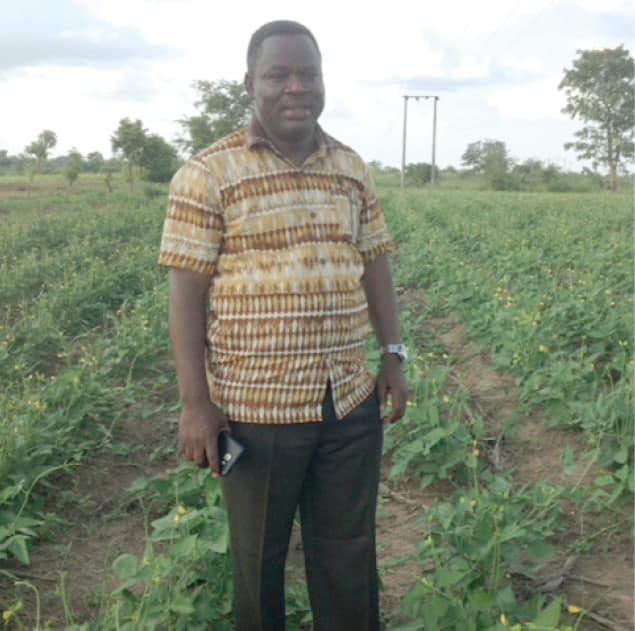Farmers in Benue State Embrace High-Yielding Seeds to Transform Agriculture
Farmers in Benue State are showing renewed hope and confidence as they prepare to boost their crop production. This optimism stems from the introduction of high-yielding seeds designed for commercial farming, which has sparked excitement among local agricultural communities. The adoption of these new seed varieties is seen as a crucial step toward transforming small-scale farming into more profitable and sustainable operations.
At a recent seed and input fair held in Makurdi, farmers were introduced to improved seed varieties and environmentally friendly agricultural inputs that could significantly enhance their productivity. The event, organized by the International Institute of Tropical Agriculture (IITA) in collaboration with the Joseph Sarwuan Tarka University (JOSTUM), provided an opportunity for farmers to learn about innovative practices that could help them increase their profits and access new markets.
One of the participants, Ada Oche, a farmer specializing in maize and cowpea, expressed her enthusiasm about the new seed varieties. She was particularly excited about a cowpea variety that cooks in under 35 minutes, which she plans to plant after the upcoming drought. “I can’t wait to see the results,” she said.
Other stakeholders involved in the rice, cowpea, soybean, and maize value chains also praised the initiative, highlighting how it exposed them to new techniques that could improve their yields and open up export opportunities. For many farmers, this event marked a turning point in their approach to agriculture, encouraging them to view farming as a business rather than just a subsistence activity.
Vitalis Tarnongu, a large-scale farmer who showcased his produce at the fair, encouraged others to embrace agriculture. He emphasized the importance of following best agronomic practices to maximize profitability. “JOSTUM has positively impacted my farming, and I now treat it as a business,” he said. “The university offers great opportunities for farmers in Benue, and I urge others to take advantage of this knowledge hub.”
Innovations and Breakthroughs in Agricultural Research
Dr. Teryima Iorlamen, the project team lead, explained that the primary goal of the fair was to showcase the research outputs of JOSTUM, many of which were previously unknown to farmers. He noted that most farmers still rely on traditional grains instead of certified seeds, emphasizing the need for continued education and awareness.
Iorlamen highlighted several breakthroughs made by scientists at JOSTUM, including a strigga-resistant cowpea variety that matures in just 60 days and a maize variety that reaches maturity in two months. These innovations, he said, are tailored to meet the needs of farmers in the Middle Belt region, where conditions can be challenging.
He also mentioned the inclusion of socio-economicists and women representatives in the breeding team, ensuring that the needs of all stakeholders are considered when developing new seed varieties. For instance, a cowpea variety that cooks in 35 minutes or less has been developed, which, when mixed with rice, reduces cooking time significantly.
Iorlamen warned that drought is expected soon, according to predictions from the Nigerian Meteorological Agency (NIMET). He stressed the importance of adopting drought-resistant cowpea varieties to ensure food security during dry seasons. Additionally, he mentioned the availability of sorghum varieties that can be harvested within three months, further enhancing the resilience of local farming systems.
New Varieties and Their Impact
The Alkam super cowpea, developed in the molecular biology laboratory at JOSTUM, represents a significant advancement in cowpea breeding. Led by Professor Lucky Omoigui, the team began with FUMPEA 1, which faced criticism for its small seed size. Through continuous improvements, the team developed FUMPEA 2, 3, and 4 before introducing the latest Alkam super variety. This variety, characterized by its milk-like color, has shown excellent performance in field trials across Benue, Abuja, and Zaria.
Other varieties of soybean, sorghum, maize, and rice were also displayed at the fair, showcasing the breadth of agricultural innovation taking place in the region.
Collaboration and Support for Farmers
Professor Phillip Agber, the chief host of the seed fair and dean of the College of Agronomy, emphasized the purpose of the event: to highlight the resources and innovations developed by the college to support farmers. He noted the long-standing partnership between JOSTUM and IITA, which has led to significant advancements in legume seed development.
Mrs. Bose Akinyemi, head of the Crop Department at JOSTUM, reiterated the importance of using quality seeds as the foundation of successful farming. She stated, “The varieties help to get good yield.”
Professor Ngozi Odiaka, director of the Seed Centre at JOSTUM, explained that all available seed varieties had undergone rigorous testing. She highlighted the role of Jigawa State in testing crops for striga resistance, noting that if a seed performs well there, it can thrive anywhere.
Broader Implications for Agriculture
Chief Abel Owiocho, deputy chairman of the All Farmers Association of Nigeria (AFAN) in Benue State, noted that all members of AFAN are actively engaged in farming. Meanwhile, Friday Ogiri, state coordinator of the Nigerian Export Promotion Council (NEPC), emphasized the council’s interest in ensuring that agricultural products meet export standards.
Ogiri remarked, “We are seeing results in export because of the work this university (JOSTUM) is doing.”
Doshima Zaki, acting director-general of the Benue Agricultural and Rural Development Authority (BNARDA), stressed the foundational role of seeds in all farming activities. She encouraged greater dissemination of information about good legume seeds to help farmers boost productivity and income.
She also highlighted the growing demand for legumes, citing recent interest from Arab buyers in soybeans. “We have not paid enough attention to legumes, whose importance in daily life cannot be overstated,” she said.

